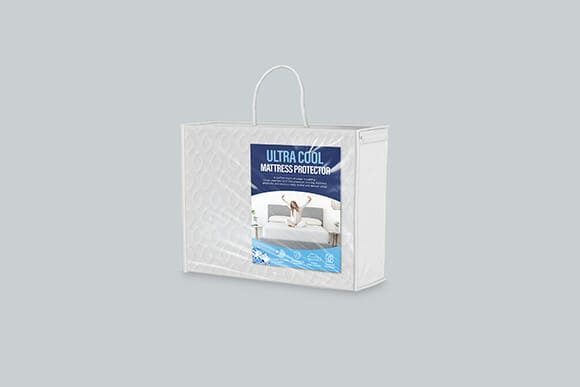
IS COPPER TOXICITY RELATED TO INSOMNIA?
Is Copper Toxicity Related to Insomnia?
Gwyneth Paltrow writes in her new book Goop Clean Beauty, “(Sleep) should be your first priority, even before you think about your diet.” The great actress who has now ventured into writing about areas such as “clean” cooking, stress reduction and now giving words of wisdom on sleep hygiene has cleverly coined the term “Clean Sleeping,” and no, it doesn’t mean taking a shower before bedtime…
“Despite doing everything right, I still don’t sleep well”
This is what I hear from so many patients, especially into their second half of life. So many of us basically do all the right things that would be under the category of “clean sleeping”, formerly recognized as good “Sleep Hygiene”; yet still we have difficulty getting a good night’s sleep! We do all the “right things”. We don’t eat several hours before bedtime. We create a room that is essentially quiet, dark and keep the temperature around the 68-70 degrees. We try and go to bed about 7-8 hours before sunrise and try to avoid caffeine especially 8 to 10 hours before retiring to bed. We have the perfect bed and pillow, but still, we can’t fall asleep, wake up several hours into our sleep, have difficulty with going back to sleep or simply wake up way to early, barely able to squeak out 5 or at 6 hours at best! Sound familiar?? Well, perhaps there is one more thing that has been overlooked that is building up in our bodies that we are completely unaware and have heard very little about!
The one mineral that just might be the culprit
Just maybe, you have too much COPPER in your system. Copper is a brain stimulant so may indeed be a hidden issue with your insomnia as people with too much Copper (Cu) are not able to “clear” their heads before or during sleep. Copper toxicity, also called Copperiedus, is where a person gets or retains excess levels of copper in the tissues of their bodies and the toxicity leads to health issues such as insomnia. Copper, a “trace element”, also called a “trace mineral” much like iron, cobalt, manganese, iodine, etc., that is essential and important in very small “trace” amounts (unlike the “major minerals” such as Ca, Mg, K, P and Na which are required in much larger amounts). But if it is not excreted properly or if the absorption from our environment is too great, Copper can easily become toxic to our system and for one, cause INSOMNIA.
How can we get excess copper?
We can get excess copper in many ways such as cooking highly acidic foods in uncoated copper pans, from the corrosion of copper piping in our homes and other water sources (the suggested safe level of copper in drinking water in humans varies depending on the source, but is approximately 2.0 mg/l), through copper IUDs, by smoking cigarettes, by having excess stress, in VOC’s and through many other environmental factors such as being around sprayed herbicides to prevent fungus and algae. Even estrogen medications such as birth control pills have been linked to increased retention of Copper (Cu) in the kidneys and an increased absorption of Cu. And lastly, (and I know many very health minded people don’t like to hear this) is that our tendency to lean towards a vegetarian diet can put us at risk of Cu toxicity as we shift away from Zinc rich foods such as meats, chicken, fish that help to reduce and counteract the Cu balance in our bodies. To add to the imbalance issue, vegetarians eat more Cu rich foods such as soy products, beans, whole grains and nuts. Optimally, we need an 8:1 ratio of zinc to copper in our systems to stay healthy.
How common is copper toxicity and what are other signs?
Copper overload actually is the cause behind many common health problems including physical fatigue, mental racing, emotional highs and lows, anxiety, and reproductive problems,” Anne Louise Gittleman (Nutritionist) says. ” Most practitioners don’t know anything about it, which is unfortunate because this condition is quite common, especially among women.” …Gittleman estimates that about three-quarters of the female clients she has consulted have had copper overload.
The racing of the mind can be a very impactful reason that people cannot fall asleep or wake up during the night effecting their four stages of sleep. But other copper overload signs found in the literature including writing from Carl Curt Pfeiffer, M.D., Ph.D. (1908 – 1988) of the Brain Biocentre in Princeton, New Jersey are symptoms such as metabolic slow-down leading to weight gain (as high Cu changes other mineral levels leading to decreasing thyroid activity), depression, mental illness, mood swings, brain fog, chocolate cravings, dry skin, childhood hyperactivity, headaches, cold hands and feet, and fatigue and exhaustion. One of the most alarming findings is that elevated free copper (Cu) levels exists in Alzheimer’s disease which has been linked to inorganic copper consumption. You will notice that many of the above are based around the neurological and endocrine systems of our body, two key components of sleep.
As like most disease, stress can also play a big factor in the cause of why we might have excessive Cu. David Watts, DC, PhD mentions that insufficient hormone production from weak adrenal glands (from stress overload) can be a problem as they are needed to stimulate the liver detoxification system. This can ultimately render the liver less capable to remove excess Cu from our bodies. I would predict that at least 8 out of 10 people in today’s society are on “stress overload” and have some degree of adrenal fatigue.
Copper isn’t the only metal that can be dangerous. Another category, “heavy” metals include the all too familiar Lead, Cadmium and Mercury which if in excess are well known for their potential for causing serious effects such as neurological, reproductive, renal and hematological diseases. Yet Copper has generally not been talked about despite some very excellent research about its toxicity.
How do we test for copper toxicity?
The literature continues to support that that best test for levels of minerals in our bodies is hair analysis. The test is called the “Inductively Coupled Plasma Mass Spectrometry System” or “ICP-MS” for short. The reason is that blood, sweat and urine are simply the transporters, only capturing a small period of time in which to determine the mineral levels are present. Toxic levels of copper are seen in the liver, brain and other tissues of the body including reproductive organs as well as your skin and hair.
How about other minerals?
Trace metals or sometimes called essential minerals in our system, including Zinc, Iron, Magnesium, Manganese, Selenium and Copper are essential (meaning very important and something that our bodies cannot produce on its own) in trace amounts. I emphasize “trace” amounts. We all are very aware of the importance of other trace minerals such as iron, which if in a deficient, can cause anemia. However again, ingestion or exposure of excessive amounts however can certainly be toxic to our bodies. Another category, “heavy” metals with examples like Lead, Cadmium and Mercury are well known for their potential for causing serious effects such as neurological, reproductive, renal and hematological if absorbed in too great of quantity.
How can we reduce Copper in our systems?
The simple first step if to look to increase the counteracting mineral Zinc in your system. The basic idea is that Zinc will help chelate the Copper from one’s system. I usually recommend to my patients a simple 150 mg zinc lossenger one time per day about an hour before bedtime. Zinc (Zn) is commonly recommended to boost a person’s immune system. Zinc supplements are usually combined with vitamin C and bioflavonoids. There also should be caution not to overdo the supplementation of Zinc as this may lead to a very rapid release of Cu which may lead to fatigue and other flu like symptoms. (Of course, with most if not all supplements, especially if one is taking medications, you should always consult your doctor before taking them.) Also, you may want to increase chicken, fish and lean meat to improve your natural Zinc levels. Finally, there are two medications, penicillamine and dimercaprol, heavy metal chelating agents, used for treating severe levels of Cu toxicity, a medical condition known as Wilson’s disease, but of course would only be needed in extreme cases and properly prescribed by your MD.
The Bottom Line…
Copper toxicity may be much more common than people think and if one feels that he or she has insomnia and or some of the other symptoms described above, you may want to look at things like avoiding potential environmental toxins, being aware of your diet and stress and increasing your nutritional supplementation of Zinc. You may indeed also want to go to your health care provider and ask them to order a hair analysis to determine your levels of copper. Your healthcare provider can then orchestrate the best way to reduce toxic levels in your body that just may improve your insomnia.
Of course, sleeping with the best bed in the world, JUST SLEEP by Dr Hall and the best pillow in the world PILLO1, are the first action steps most people should take to improve sleep!! Not only is proper supportive sleep critical to your comfort and pain reduction, but also JUST SLEEP has only certified non-toxic foams to reduce the chances of any environmental factors such as VOC’s into your system as you sleep. This is why JUST SLEEP’s tag line is appropriate when we say…”We’ve Got the REST coverered (R)”. Please contact us if we can be of any further help!
Sleep well,
Dr Raymond Hall, DC



















